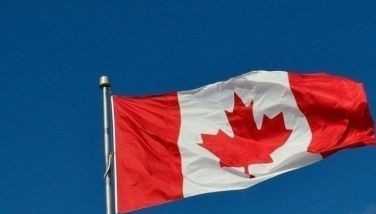Fiscal discipline to ensure stable interest regime – DBCC
MANILA, Philippines - The Aquino administration’s strong balance sheet will be influential in setting the direction of local interest rates, expected to come under continued intense volatility as the US prepares to hike its own.
In its mid-year report released Sept. 30, the Development Budget Coordinating Committee (DBCC) said: “Uncertainties surrounding the anticipated federal funds rate hikes could lead to upward pressures on domestic interest rates.”
It added however: “The National Government’s (NG) commitment to fiscal discipline and the current ample liquidity in the financial system would help preserve stability in domestic interest rates.”
The DBCC is in charge of setting the government’s macroeconomic assumptions. It groups the Office of the President and the central bank with the departments of Finance and Budget and Management, as well as the National Economic and Development Authority.
According to the report, the government’s strong cash position will be a factor in investor sentiment in bidding for Treasury bill (T-bill) rates, a key benchmark in setting short-term bank lending rates.
Based on estimates provided, T-bill rates have averaged 2.1 percent in the first half of 2015, 40 basis points higher than the same period a year ago as investors get ready to flock to the US in anticipation of higher rates in the world’s safe haven.
But despite trending higher, T-bill rates have continued to settle at the low-end of the government’s target of two- to four-percent this year.
“Foreign rates have inched up marginally...However, this was lower than the DBCC-assumed LIBOR range,” it added. LIBOR is a key foreign interest rate gauge.
DBCC officials did not respond to a request for comment, but Jonathan Ravelas, chief market strategist at BDO Unibank Inc., said the budget deficit being narrow means the government does not need to borrow money.
As of August, the budget gap – which means more revenues spent than earned-- totaled P3.41 billion against a year-end cap of P283.7 billion.
“If (the government is) spending less, then chances of widening the deficit is smaller too and requires less of borrowing, therefore, keeping rates low,” Ravelas said in an e-mail.
“On the other hand, NG did some bond swap a few months ago to take advantage of the low rates. It is my view global interest rates will soon rise sooner or later,” he said.
The state borrows domestically every two weeks through the bond market. For the past three quarters, however, it has been borrowing less than its quarterly program of P135 billion in a show of a strong balance sheet.
In the first and second quarters, it settled at borrowing only P90 billion, while in the previous three months, only P106.945 billion were awarded.
Aside from the T-bill rates, the DBCC said interest rates this year could remain low as the Bangko Sentral ng Pilipinas (BSP) maintains its policy rates steady at four and six percent.
“The trend in T-bill rates will continue to be influenced by the cash position of the national government, the liquidity conditions in the economy as well as the policy actions by the BSP and the US Federal Reserve,” the report explained.
- Latest
- Trending




























